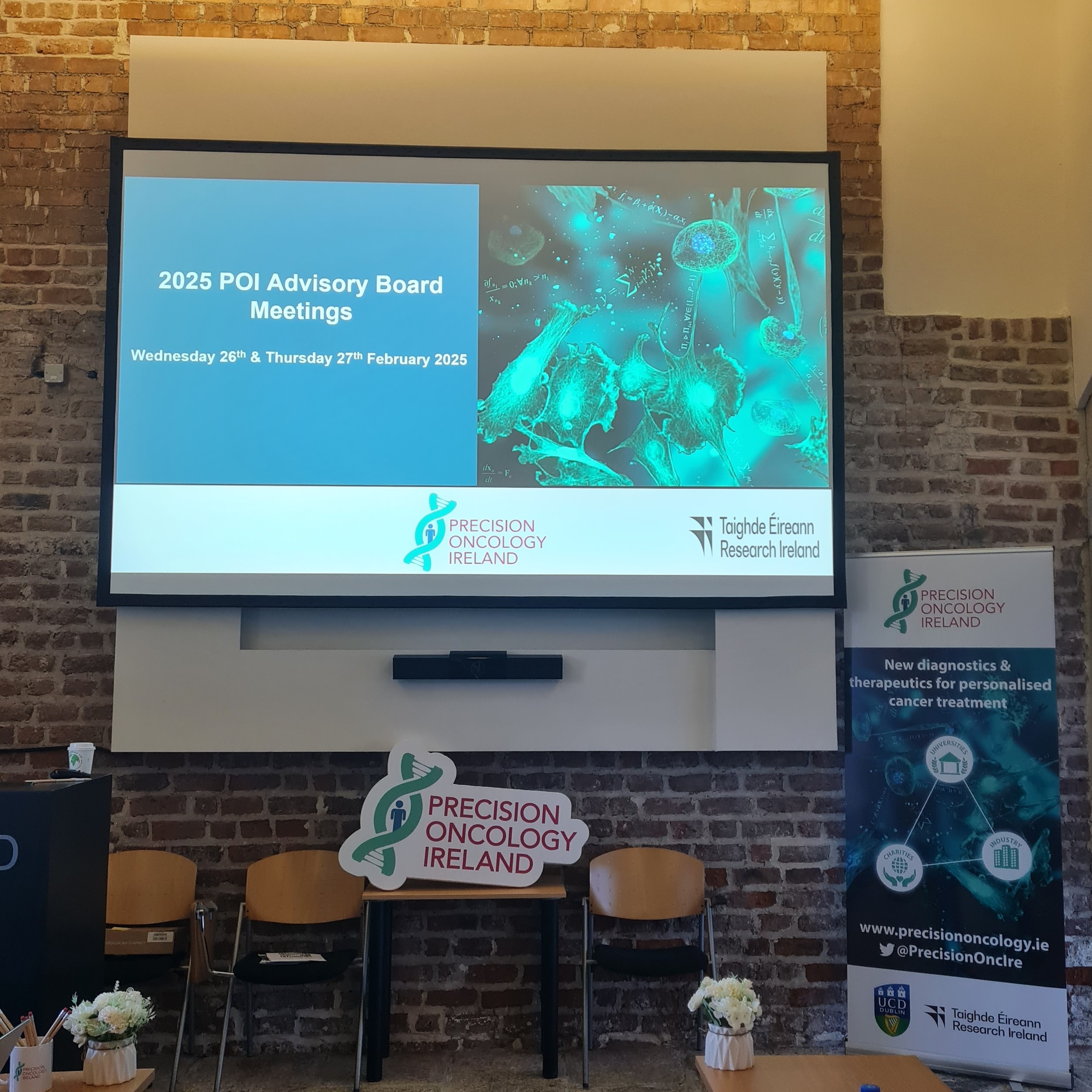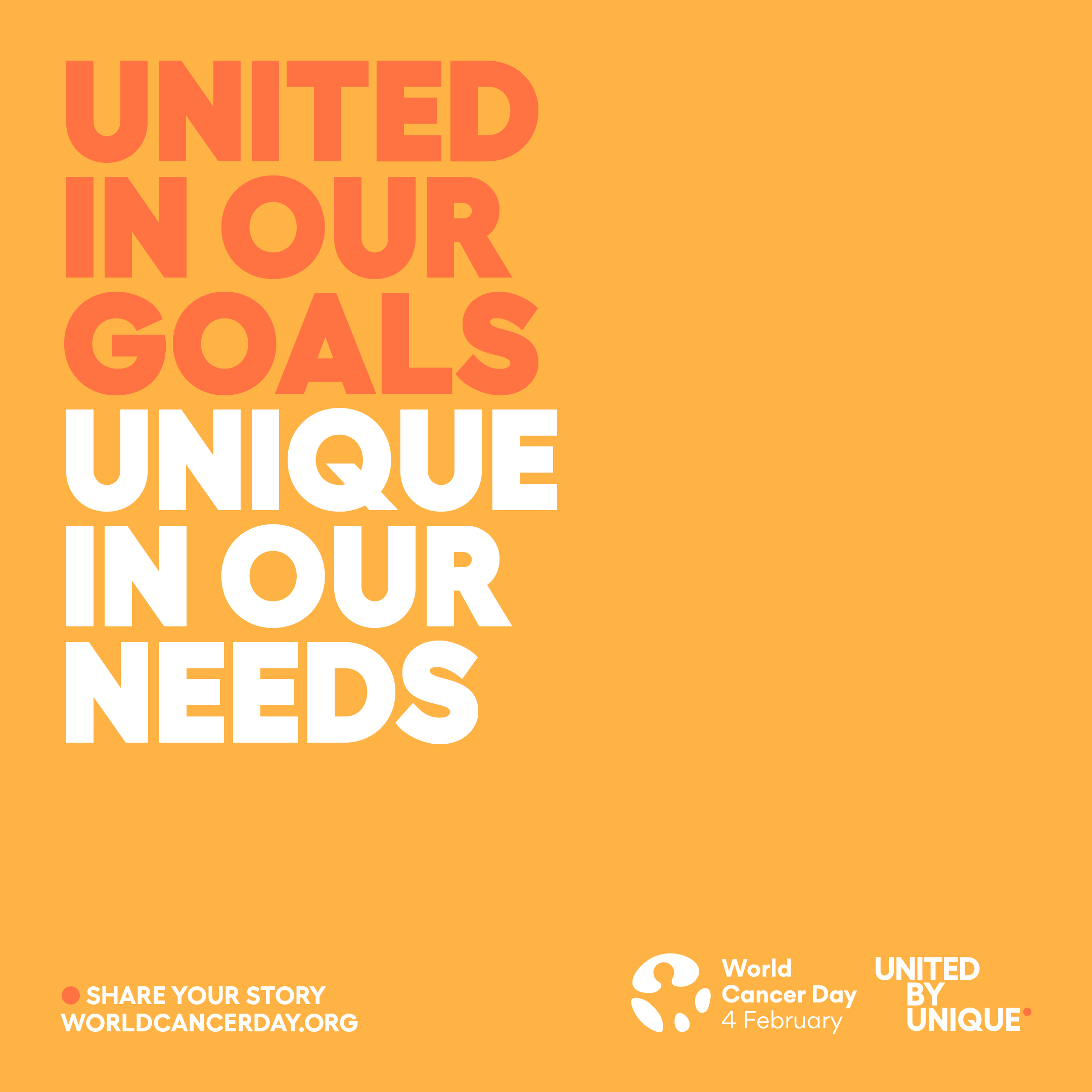Launch of Precision Oncology Ireland
More than 90 scientists, cancer patients, academic, charity and industry representatives gathered on Tuesday, November 26th, to launch the new Precision Oncology Ireland research programme at University College Dublin. Minister of Business, Enterprise and Innovation, Heather Humphreys TD, was in attendance to say a few words in celebration and cut the ribbon. “I am delighted to announce this significant step forward for cancer research in Ireland,” Humphreys said.
“Precision Oncology Ireland is a significant investment, not only from Government, but also from the charity and industry partners in the programme, testimony to their conviction that this initiative will lead to the development of new cancer treatments and make a difference for future cancer patients and their families in our country. I look forward to seeing the impact that this research programme will have in the future,” she said.
Minister Humphreys address was preceded by a keynote talk from Dr. Cormac Owens from Children’s Health Ireland, as well as an overview on the programme from Professor Walter Kolch. Kolch is the director of Systems Biology Ireland and, now, Precision Oncology Ireland.
“In Precision Oncology Ireland, we will use cutting-edge technologies to generate unique genetic and molecular profiles for each patient’s cancer,” Kolch said. “Our key competitive advantage lies in the innovative computational methods we use to make sense of these profiles, and decipher what drives each individual cancer. The results of this programme will be better diagnostics, personalised cancer treatment and faster drug discovery and development.”
Precision (or ‘personalised’) medicine uses data about a person’s genes (genomics), along with additional information on their cancer, to understand the unique pathways of a disease or treatment response in that person. With this new science, doctors can prescribe the right treatment in a timely fashion, saving the wasted resources and time our current ‘trial and error’ method incurs, while greatly improving response rates.
The Deputy Director of the programme, Professor William Gallagher, hopes that this programme will allow cancer patients to benefit from research advances at an earlier stage: “We believe that Precision Oncology Ireland will accelerate the development of new diagnostics and therapies for cancer, and allow these advances to reach cancer patients in Ireland earlier. We will also involve patients in this work from the beginning, to ensure that their voice is heard in determining the most relevant research priorities.”
In Ireland, more than 40,000 people are diagnosed with cancer each year. Precision approaches to oncology give hope of improving cancer patients response rates and survival, reducing side-effects from therapy, and shortening hospital stays, balancing out any increased cost to the healthcare system. The National Cancer Strategy (2017-2026) called for the introduction of precision diagnostics and therapeutics into frontline cancer care.
Professor Kolch added: “A significant proportion of our funding is down to the generosity of the Irish public in donating and fundraising, via the participation of six of the leading cancer charities in Ireland, the first time they have come together to support a programme of this scale. We want to ensure that their hard work delivers results for cancer patients in Ireland.”
Many in attendance at the launch commented on the powerful stories from the evening’s “Patient Perspectives” panel of cancer patients, survivors and family members. The panel featured Sheila Murphy, an oesophageal cancer survivor; Edel Cannon, a metastatic breast cancer patient; Ramon Whelan, a testicular cancer survivor, Dr. Alan Pearson, the parent of a child with neuroblastoma, and Jan Rynne a CLL patient, all of whom volunteered to discuss their experiences with cancer and the importance of research initiatives such as Precision Oncology Ireland in future treatment of the disease.
Cancer survivor and patient advocate Ramon Whelan spoke of the importance of this game-changing research for patient’s lives: “I’m delighted to see researchers, charities and industry coming together in Ireland to focus as a group on the problems in cancer treatments. Cancer patients want to become more involved in their own treatment decisions, and more personalised diagnostics and treatments are essential for this to happen.”
The afternoon presentations were followed by a reception and photo session of all the representative groups and organisations. The launch and associated press release was picked up by a number of media outlets and profiled in the national newspapers and online news sites.

